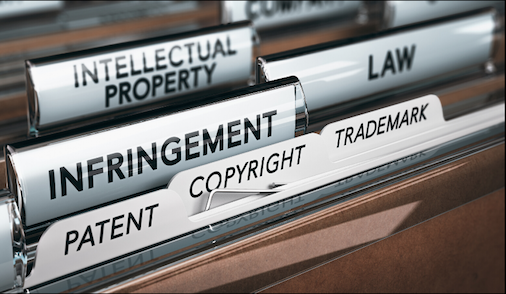By Stephanie L. Dunn
Download a PDF of the article here
In trademark litigation under the Lanham Act (“Act”), one of the most significant claims sought by the plaintiff is the disgorgement of all profits earned by the infringing defendant. The disgorgement remedy is designed to be a major deterrent to trademark infringement. Until recently, there was a vast split in the Federal Circuit Courts regarding the showing the plaintiff would have to make in order to qualify for the disgorgement remedy. The First, Second, Eighth, Ninth, Tenth, and Federal Circuit Courts held that in order for the defendant’s profits to be awarded, the plaintiff had to show the defendant’s conduct was willful. On the other side, the Third, Fourth, Fifth, Sixth, Seventh, and Eleventh Circuit Courts applied a balancing test to determine if profits could be awarded, where proof of willfulness was a factor to be considered, but not dispositive of the overall outcome. This split between the Circuits has now been resolved by the Supreme Court’s recent ruling in Romag Fasteners v. Fossil, 140 S.Ct. 1492 (April 23, 2020).
Romag stems from a case regarding fasteners for handbags and accessories produced by the well-known designer Fossil. Fossil originally signed an agreement with Romag to use Romag’s fasteners on Fossil’s handbags and accessories. Romag later discovered that Fossil’s factories in China were using counterfeit Romag fasteners and sued Fossil for trademark infringement. Romag requested part of Fossil’s profits be awarded as a remedy for the infringement. The court initially denied Romag’s request for profits because, while the jury found that Fossil had acted callously, they did not find that Fossil acted willfully and therefore, an award of profits was not supported by the Lanham Act (“Act”). Romag appealed and the Supreme Court ultimately reversed the ruling.
Remedies under the Lanham Act for trademark violations are primarily governed by section 1117, while sections 1111 and 1114 create limitations to those requesting to be awarded profits. Upon review, the Supreme Court determined that when the various remedy sections of the Lanham Act are cross referenced with one another, they do not specifically require a plaintiff to establish willfulness on the part of a defendant to be eligible for an award of profits. The Supreme Court further noted that in enacting the Lanham Act, the legislature took great care to explicitly detail the mental states required for increasing statutory damages, and thus, the fact that the Act is silent on a willfulness requirement to obtain profits is reason to hold that such requirement does not exist.
Fossil attempted to claim willfulness was required based on the phrase “subject to the principle of equity” in § 1117(a), arguing that historically courts of equity require a showing of willfulness before authorizing an award of profits for trademark disputes. However the Supreme Court stated that such claim would require the court to assume that Congress intended to incorporate a willfulness requirement even though there was no such requirement specifically set forth in the Act. Rather, the Act explicitly prescribed such conditions for other types of damages elsewhere. Additionally, the Supreme Court noted that the phrase “principles of equity” has been used by Congress and in the Lanham Act on multiple occasions, all with different meanings and contexts. As such, the Supreme Court held it was unlikely that Congress meant the phrase “principles of equity” to create such a narrow rule about profit remedies in trademark law. Ultimately, the court concluded that while defendant’s state of mind and willfulness is an important consideration in awarding profits to plaintiff, it is not an explicit requirement.
The Supreme Court’s opinion might lead some to believe that they can be awarded a portion of an infringing defendant’s profits regardless of the innocence or intentional nature of defendant’s actions; however, they should proceed with caution. While Justice Sotomayor concurred with the majority’s ruling, she did so in judgment only. Justice Sotomayor noted the majority’s opinion appears to suggest that a court is just as likely to award profit damages against an innocent infringer as they would a willful infringer, even though doing so goes against the already well established legal authorities. Such legal authorities have rarely awarded profits for innocent infringement and goes against the long standing equitable principles that aim only to deprive wrongdoers of profits for their misconduct. Furthermore, while the Supreme Court ruled that willfulness is not a requirement in order to be eligible for recovery of profits, it is likely the Third, Fourth, Fifth, Sixth, Seventh, and Eleventh circuits will continue to use their established balancing test. Additionally, defendant’s willfulness or lack thereof will remain a key factor in determining what damages should be awarded to plaintiff in these circuits. Unfortunately, we will have to wait and see if the First, Second, Eighth, Ninth, Tenth and Federal Circuits decide to follow the other circuits, or develop their own balancing test with regard to an award of profits.
If you have any questions and want to know more or think you may have a trademark issue, we are here to help. Let us know at info@ch-law.com.
 Stephanie L. Dunn is a graduate of Oklahoma State University and received her master’s degree from the University of Oregon. She received her law degree from Pepperdine University School of Law where she also earned a Certificate in Entertainment, Media, and Sports Law. At Pepperdine, Stephanie served as the Managing Editor of the Journal of the National Association of Administrative Law Judiciary and published an article titled, “Please Don’t Make Me Pay Taxes: How New IRS Law Helps Art Collectors Avoid Hefty Taxes.” During law school Stephanie worked at the Pepperdine Low Income Taxpayer Clinic, the General Counsel’s Office at the Getty Museum, and the Pepperdine Athletic Compliance Department. Prior to joining Coleman & Horowitt, Stephanie worked in Los Angeles practicing worker’s compensation defense. Stephanie works in the transactions department of the firm’s Fresno and Los Angeles office where she represents clients in the areas of business transactions, real estate, intellectual property, and estate planning.
Stephanie L. Dunn is a graduate of Oklahoma State University and received her master’s degree from the University of Oregon. She received her law degree from Pepperdine University School of Law where she also earned a Certificate in Entertainment, Media, and Sports Law. At Pepperdine, Stephanie served as the Managing Editor of the Journal of the National Association of Administrative Law Judiciary and published an article titled, “Please Don’t Make Me Pay Taxes: How New IRS Law Helps Art Collectors Avoid Hefty Taxes.” During law school Stephanie worked at the Pepperdine Low Income Taxpayer Clinic, the General Counsel’s Office at the Getty Museum, and the Pepperdine Athletic Compliance Department. Prior to joining Coleman & Horowitt, Stephanie worked in Los Angeles practicing worker’s compensation defense. Stephanie works in the transactions department of the firm’s Fresno and Los Angeles office where she represents clients in the areas of business transactions, real estate, intellectual property, and estate planning.

